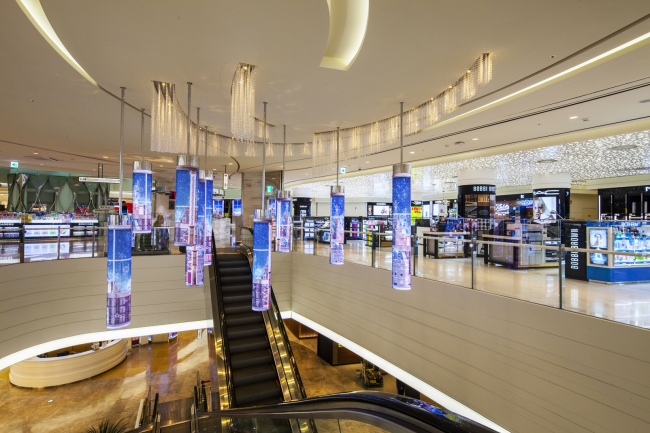Newly licensed duty-free operators in Korea have the option of delaying their opening dates in the face of uncertainty surrounding sales, according to the Korea Customs Service on Wednesday.
“To increase the predictability of the duty-free market, the KCS will pursue the postponement of opening dates for new duty-free operators, extend deadlines for paying license fees and allow fees to be paid in installments,” the KCS said through a statement.
The duty-free industry is reeling from falling sales, following the drop in Chinese tourists over an intergovernmental spat involving an American anti-missile defense system being installed here.
In 2016, Chinese tourists made up 70 percent of all duty-free sales in Korea. According to figures from the Finance Ministry, the number of Chinese shoppers fell nearly 40 percent on-year in March, following the imposition of a travel ban by Beijing.
When contacted by The Korea Herald, a spokesperson for Shinsegae DF said that the company was currently planning to open on schedule in December, while a spokesman for Hyundai Department Store said that the possibility of a postponement was “under review.”
The third large company to receive a license last year, Lotte, has already begun operations at its re-opened branch at Lotte World Tower in southern Seoul.
 |
Lotte Duty Free’s branch at Lotte World Tower in Songpa-gu, Seoul, which reopened after Lotte received a new license last year. (Lotte Duty Free) |
While existing operators rush to find new avenues for sales growth, such as outbound Korean tourists and tourists from Southeast Asia, newly licensed operators including Shinsegae and Hyundai Department Store find themselves preparing to enter a saturated and stagnant market.
Duty-free stores have been facing threats from rapidly surging online shopping by Chinese consumers, with the direct online shopping volume growing by 107.7 percent on-year. The Korean government’s additional licenses to operate duty-free stores within Seoul have also aggravated the already competitive market fighting over lower demand.
The initial deadline for opening was this December, a year after the licenses were granted.
Industry analysts say that postponing the opening may be more beneficial for duty-free operators. Writing for Eugene Research, analyst Joo Yeong-hun said that the best option would be to delay the new stores’ opening by at least three months.
“Considering that the number of Chinese tourists traveling to Japan reached previous levels about 11 months following a row over the Senkaku/Diaoyu islands, it seems that new duty-free operators could minimize their damage by delaying their opening date three months or longer,” he said.
By Won Ho-jung (
hjwon@heraldcorp.com)








![[Today’s K-pop] Blackpink’s Jennie, Lisa invited to Coachella as solo acts](http://res.heraldm.com/phpwas/restmb_idxmake.php?idx=644&simg=/content/image/2024/11/21/20241121050099_0.jpg)